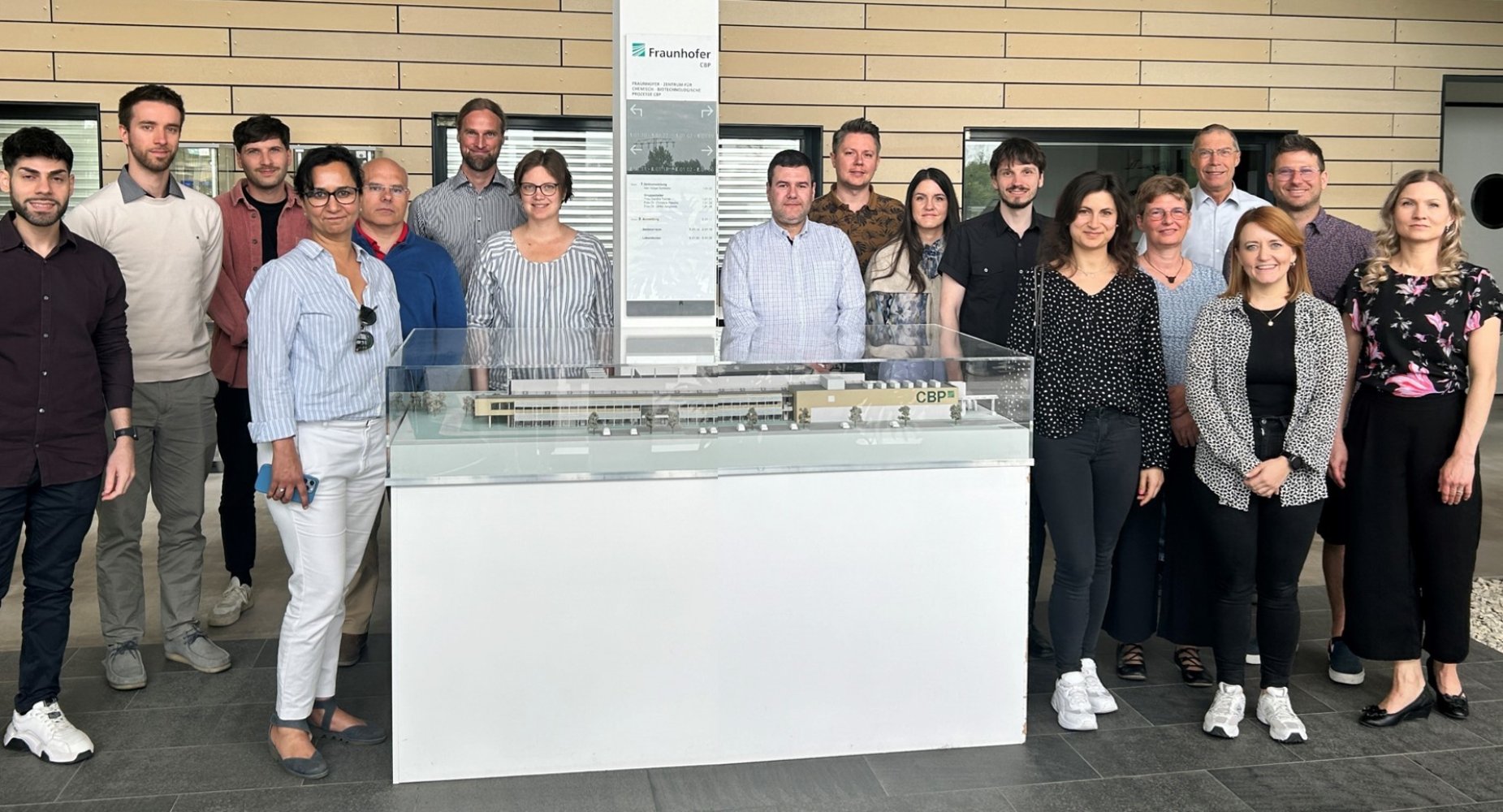BioSPRINT Project Concludes with Significant Achievements for Biorefining Technology
After four productive years, the BioSPRINT project comes to a successful end. During the final General Assembly meeting at the Leuna Chemical Complex, the project partners presented results of the final project phase, which focused on integrating the individual steps of the BioSPRINT process. The BioSPRINT technology provides an intensified concept to improve biorefinery operations at a final TRL of 4-5. Key outcomes demonstrate the feasibility of producing valuable furan monomers from renewable biomass and show significant potential for commercialisation.
In May 2024, the BioSPRINT partners convened for their 9th and final General Assembly meeting after a project duration of 48 months at the Fraunhofer Center for Chemical-Biotechnological Processes CBP in Leuna, Germany. The meeting featured final project updates, discussions on future steps to further develop the BioSPRINT technology, as well as tours of the CBP facilities and the UPM biorefinery site. The final project phase focused largely on the overall integration of the individual steps of the BioSPRINT process: Starting with the initial membrane purification of hemicellulose streams from pre-treated hardwood biomass in Finland, via the catalytic conversion of HMC sugars to furans in the UK, their downstream purification in Germany to the successful production of biobased BioSPRINT polymers in Italy.
The BioSPRINT process integration was accompanied by comprehensive techno-economic as well as environmental and social assessments that describe the commercial attractiveness and sustainability aspects of the developed technology. The project partners also finalised a CEN Workshop Agreement (CWA) on "Evaluation of Process Intensification of Biorefining Processes for Economic and Sustainability Viability (EvaPIBioref)", which was developed through the European Committee for Standardization and will be published soon.
The BioSPRINT project consists of 13 partners from 8 European countries and is coordinated by the German non-profit professional society DECHEMA e.V. The project consortium combines researchers, technology providers, industrial actors, end-users, and support organisations and provides a cross sectorial and transdisciplinary opportunity for all stakeholders to collaborate and share technical knowledge and market expertise.
 Fraunhofer Center for Chemical-Biotechnological Processes CBP
Fraunhofer Center for Chemical-Biotechnological Processes CBP